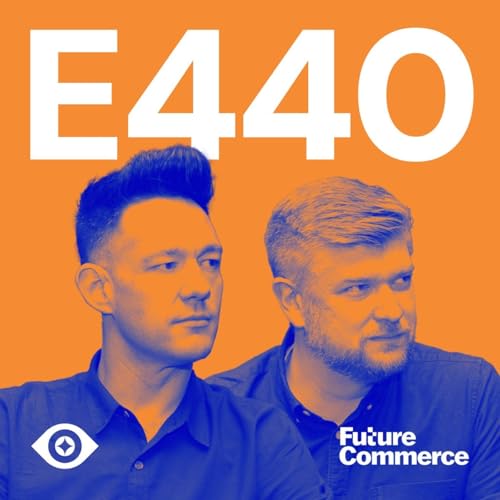Cash flow isn't just spreadsheets—it's survival. In an era of tariffs, currency swings, and supply chain whiplash, small businesses face a paradox: grow fast while everything shifts beneath you. Corinne Boonstra (Brex) and Aharon Naveen (Melio) unpack how payment independence becomes the ultimate competitive advantage.
Key takeaways:- Tariff volatility forces brands to message consumers directly about pricing pressures
- Small businesses gain agility advantage by switching suppliers faster than competitors
- Payment independence decouples cash flow from vendor relationship power dynamics
- Technology stacks need finance-novice friendliness, not just CFO sophistication
Key Quotes:Corinne Boonstra [00:08:11]: "Brands are having to reach out to their consumer base to communicate with them why prices are increasing or using that as kind of a pivotal point of, say, buy these goods now while they're this price."
Aharon Naveen [00:12:06]: "Switching vendors is complex. It comes with an operational overhead of different net terms, different currency conversions, different shipping time, different payment acceptance."
Aharon Naveen [00:19:45]: "Giving the control back to small business, putting them in a position that they can overcome the relationship dynamic or the power dynamic of a new vendor—that is what technology brings to play."
Corinne Boonstra [00:23:10]: "These tools need to be able to be leveraged by your CMO, your head of digital, your founder—whoever is ultimately making these decisions might not have an accounting background."
Associated Links:- Learn more about Brex
- Learn more about Melio
- Check out Future Commerce on YouTube
- Check out Future Commerce+ for exclusive content and save on merch and print
- Subscribe to Insiders and The Senses to read more about what we are witnessing in the commerce world
- Listen to our other episodes of Future Commerce
Have any questions or comments about the show? Let us know on futurecommerce.com, or reach out to us on Twitter, Facebook, Instagram, or LinkedIn. We love hearing from our listeners!
Hosted by Simplecast, an AdsWizz company. See pcm.adswizz.com for information about our collection and use of personal data for advertising.
 58 分
58 分![[STEP BY STEP] The Spend Behind the Scale](https://m.media-amazon.com/images/I/41mr7tK-7NL._SL500_.jpg) 2026/01/2930 分
2026/01/2930 分![[STEP BY STEP] Seizing the Seasonal Opportunity](https://m.media-amazon.com/images/I/41kBZLPCdsL._SL500_.jpg) 41 分
41 分![[STEP BY STEP] Optimizing the Product Promise](https://m.media-amazon.com/images/I/41THaBtvcOL._SL500_.jpg) 28 分
28 分 39 分
39 分 2026/01/215 分
2026/01/215 分 2026/01/1640 分
2026/01/1640 分 36 分
36 分
